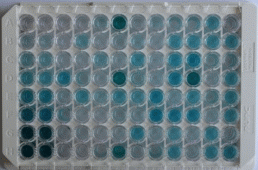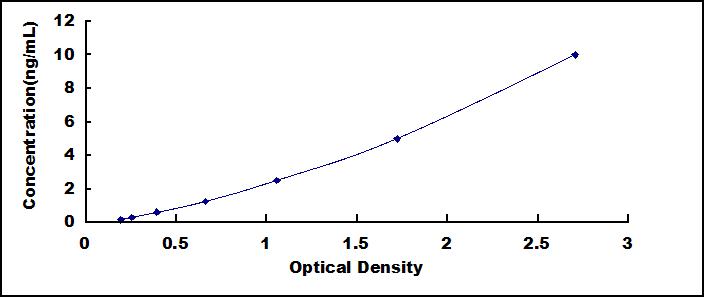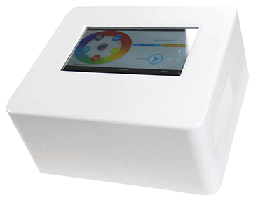Packages (Simulation)

Reagent Preparation

Image (I)
Image (II)
Certificate


ELISA Kit for Permeability Glycoprotein (Pgp)
CD243; ABCB1; ABC20; CLCS; GP170; MDR1; PGY1; P-Glycoprotein; Multidrug resistance protein 1; ATP-Binding Cassette,Sub-Family B(MDR/TAP),Member 1; Colchicin Sensitivity
- Product No.SEB690Mu
- Organism SpeciesMus musculus (Mouse) Same name, Different species.
- Sample Typetissue homogenates, cell lysates and other biological fluids
- Test MethodDouble-antibody Sandwich
- Assay Length3h
- Detection Range0.156-10ng/mL
- SensitivityThe minimum detectable dose of this kit is typically less than 0.059ng/mL.
- DownloadInstruction Manual
- UOM 48T96T 96T*5 96T*10 96T*100
- FOB
US$ 479
US$ 684
US$ 3078
US$ 5814
US$ 47880
For more details, please contact local distributors!
Specificity
This assay has high sensitivity and excellent specificity for detection of Permeability Glycoprotein (Pgp).
No significant cross-reactivity or interference between Permeability Glycoprotein (Pgp) and analogues was observed.
Precision
Intra-assay Precision (Precision within an assay): 3 samples with low, middle and high level Permeability Glycoprotein (Pgp) were tested 20 times on one plate, respectively.
Inter-assay Precision (Precision between assays): 3 samples with low, middle and high level Permeability Glycoprotein (Pgp) were tested on 3 different plates, 8 replicates in each plate.
CV(%) = SD/meanX100
Intra-Assay: CV<10%
Inter-Assay: CV<12%
Stability
The stability of kit is determined by the loss rate of activity. The loss rate of this kit is less than 5% within the expiration date under appropriate storage condition.
To minimize extra influence on the performance, operation procedures and lab conditions, especially room temperature, air humidity, incubator temperature should be strictly controlled. It is also strongly suggested that the whole assay is performed by the same operator from the beginning to the end.
Reagents and materials provided
| Reagents | Quantity | Reagents | Quantity |
| Pre-coated, ready to use 96-well strip plate | 1 | Plate sealer for 96 wells | 4 |
| Standard | 2 | Standard Diluent | 1×20mL |
| Detection Reagent A | 1×120µL | Assay Diluent A | 1×12mL |
| Detection Reagent B | 1×120µL | Assay Diluent B | 1×12mL |
| TMB Substrate | 1×9mL | Stop Solution | 1×6mL |
| Wash Buffer (30 × concentrate) | 1×20mL | Instruction manual | 1 |
Assay procedure summary
1. Prepare all reagents, samples and standards;
2. Add 100µL standard or sample to each well. Incubate 1 hours at 37°C;
3. Aspirate and add 100µL prepared Detection Reagent A. Incubate 1 hour at 37°C;
4. Aspirate and wash 3 times;
5. Add 100µL prepared Detection Reagent B. Incubate 30 minutes at 37°C;
6. Aspirate and wash 5 times;
7. Add 90µL Substrate Solution. Incubate 10-20 minutes at 37°C;
8. Add 50µL Stop Solution. Read at 450nm immediately.
GIVEAWAYS
INCREMENT SERVICES
-
 Single-component Reagents of Assay Kit
Single-component Reagents of Assay Kit
-
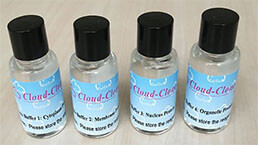 Lysis Buffer Specific for ELISA / CLIA
Lysis Buffer Specific for ELISA / CLIA
-
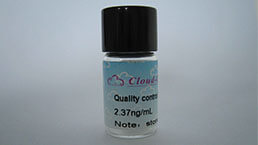 Quality Control of Kit
Quality Control of Kit
-
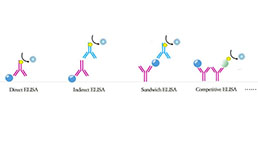 ELISA Kit Customized Service
ELISA Kit Customized Service
-
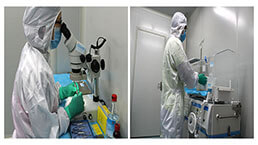 Disease Model Customized Service
Disease Model Customized Service
-
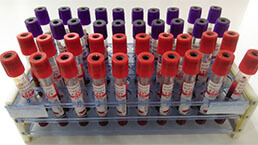 Serums Customized Service
Serums Customized Service
-
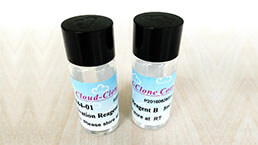 TGFB1 Activation Reagent
TGFB1 Activation Reagent
-
 Real Time PCR Experimental Service
Real Time PCR Experimental Service
-
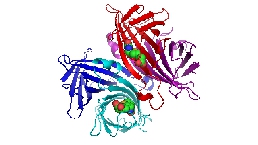 Streptavidin
Streptavidin
-
 Fast blue Protein Stain solution
Fast blue Protein Stain solution
-
 Single-component Reagents of FLIA Kit
Single-component Reagents of FLIA Kit
-
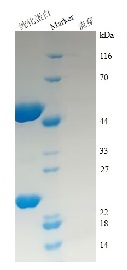 Streptavidin-Agarose Beads
Streptavidin-Agarose Beads
| Magazine | Citations |
| International Forum of Allergy & Rhinology | P-glycoprotein promotes epithelial T helper 2–associated cytokine secretion in chronic sinusitis with nasal polyps Onlinelibrary: alr.21316 |
| International Forum of Allergy & Rhinology | P‐glycoprotein regulates Staphylococcus aureus enterotoxin B–stimulated interleukin‐5 and thymic stromal lymphopoietin secretion in organotypic mucosal explants PubMed: 26625351 |
| American Journal of Rhinology & Allergy | Intact soluble P-glycoprotein is secreted by sinonasal epithelial cells. pubmed:27456593 |
| The Laryngoscope | Secreted P-glycoprotein is a noninvasive biomarker of chronic rhinosinusitis pubmed:27577924 |
| Materials Science and Engineering: C | Design of colloidal drug carriers of celecoxib for use in treatment of breast cancer and leukemia |
| Molecular Cancer | Chemotherapeutic drugs stimulate the release and recycling of extracellular vesicles to assist cancer cells in developing an urgent chemoresistance Pubmed: 31830995 |
| Catalog No. | Related products for research use of Mus musculus (Mouse) Organism species | Applications (RESEARCH USE ONLY!) |
| RPB690Mu02 | Recombinant Permeability Glycoprotein (Pgp) | Positive Control; Immunogen; SDS-PAGE; WB. |
| RPB690Mu01 | Recombinant Permeability Glycoprotein (Pgp) | Positive Control; Immunogen; SDS-PAGE; WB. |
| PAB690Mu02 | Polyclonal Antibody to Permeability Glycoprotein (Pgp) | WB; IHC; ICC; IP. |
| PAB690Mu01 | Polyclonal Antibody to Permeability Glycoprotein (Pgp) | WB; IHC; ICC; IP. |
| LAB690Mu71 | Biotin-Linked Polyclonal Antibody to Permeability Glycoprotein (Pgp) | WB; IHC; ICC. |
| LAB690Mu81 | FITC-Linked Polyclonal Antibody to Permeability Glycoprotein (Pgp) | WB; IHC; ICC; IF. |
| SEB690Mu | ELISA Kit for Permeability Glycoprotein (Pgp) | Enzyme-linked immunosorbent assay for Antigen Detection. |
| LMB690Mu | Multiplex Assay Kit for Permeability Glycoprotein (Pgp) ,etc. by FLIA (Flow Luminescence Immunoassay) | FLIA Kit for Antigen Detection. |

